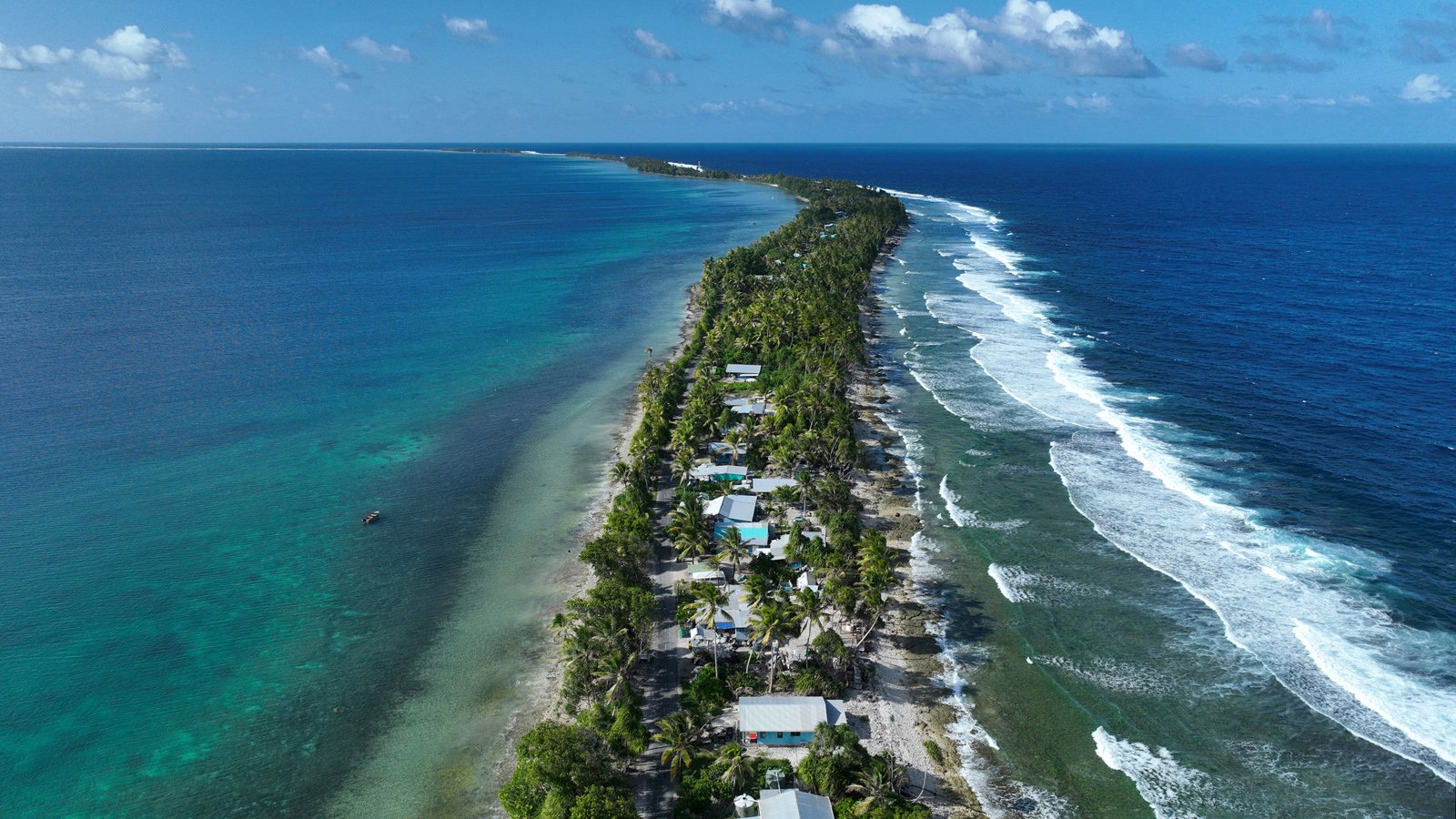Protection of the Pacific Islands to become a focus of Germany's foreign climate policy
Rising sea levels are an existential threat for the Pacific atoll island countries. What actions the Robert Bosch Stiftung, the Global Centre for Climate Mobility and the Rising Nations Initiative now urge the German government to consider.
In April 2023, the World Meteorological Organization found that the rate of global average sea level rise doubled in the last ten years. Rising sea levels and the consequences of the climate crisis are creating an increasingly uncertain future for people in many parts of the world. In the Pacific, the atoll island countries of Tuvalu, Kiribati and the Marshall Islands will become uninhabitable before being submerged by rising seawater. This represents an existential question for the political, economic, cultural and social fabric of whole countries.
The international community needs to act - spearheaded by Germany
The international community needs to act NOW – spearheaded by champions like Germany willing to address the climate crisis and all its bitter consequences. In her opening speech at the fourteenth Petersberg Climate Dialogue on May 2, Foreign Minister Annalena Baerbock stressed the existential threats faced by some small island developing states. On the occasion of Tuvalu’ s representatives’ visit to Germany the Robert Bosch Stiftung, the Global Centre for Climate Mobility and the Rising Nations Initiative, urgently encourage Germany to exercise global leadership, including by making the future of the Pacific atoll island countries a core issue within its climate foreign policy.
"Germany can and must exert leadership and press for more and urgent international support in addressing Tuvalu’s and other Pacific atoll nations uncertain future."
For the first time, climate crisis makes sovereign countries uninhabitable
This will be the first time in history that the climate crisis — or more accurately, the collective inaction of many nations to prevent this crisis — will make several sovereign countries uninhabitable. For Tuvalu, a Pacific atoll island nation sitting halfway between Hawaii and Australia, the prospect of uninhabitability will most likely take place by mid-century. Kiribati and the Marshall Islands are facing similar eminent threat. What is particularly tragic: Pacific island developing states are not responsible for the climate catastrophe we are facing together, they contribute less than 0.03% of global carbon emissions.
The Rising Nations Initiative, the Global Centre for Climate Mobility and the Robert Bosch Stiftung thus urge the German government to consider the following actions:
With prioritization of these policy areas, Germany can help protect the statehood, sovereignty, rights and cultural heritage of Pacific small island developing countries like Tuvalu, while also pressing forward climate justice and addressing the impacts of climate change. These efforts will be key in supporting affected communities through their unprecedented adaptation journey.
“Finding the right solution will require statesmanship and empathy, beginning with an acknowledgement that a situation globally caused must also have a globally just and equitable solution.”
Kausea Natano, Prime Minister of Tuvalu
Germany can lead by example
Germany's leadership in the international system is rooted in its commitment to a rules-based order and being a valued-based champion in international politics. Global politics and international cooperation are about our shared responsibility to create a better world for all. By supporting small island developing states like Tuvalu who face an existential threat, Germany will set an example for other countries as well as Europe to follow, in the spirit of international cooperation coupled with climate justice and climate action.
Ambassador Samuelu Laloniu, Tuvalu Special Envoy, Rising Nations Initiative
Grace Malie, Rising Nations Initiative Youth Delegate
Kamal Amakrane, Director of the UN Global Centre for Climate Mobility and Richard von Weizsäcker Fellow at the Robert Bosch Academy
Dr. Bernhard Straub, CEO Robert Bosch Stiftung
Rising Nations Initiative and Global Centre for Climate Mobility
The Rising Nations Initiative (RNI), launched by Heads of states in September 2022, is aimed at pressing forward efforts to protect the statehood of Pacific Atoll countries, preserving their sovereignty, and safeguarding the rights and heritage of affected populations amid the climate crisis and the existential threat that this poses. The RNI is a member states-led initiative, guided by a core group of champions, including all Pacific atoll island countries. It is based around three complementary drivers of action: knowledge, partnerships, and advocacy.
The Global Centre for Climate Mobility (GCCM) is a global partnership pushed forward by a group of champion countries and enabled by the United Nations System, the World Bank, and regional organizations to address climate-forced migration and displacement in the world’s most climate vulnerable regions. GCCM efforts are supported by a multi-stakeholder coalition, including philanthropy, civil society organization and academic institutions.
The Robert Bosch Foundation supports the Rising Nations Initiative as a project.

